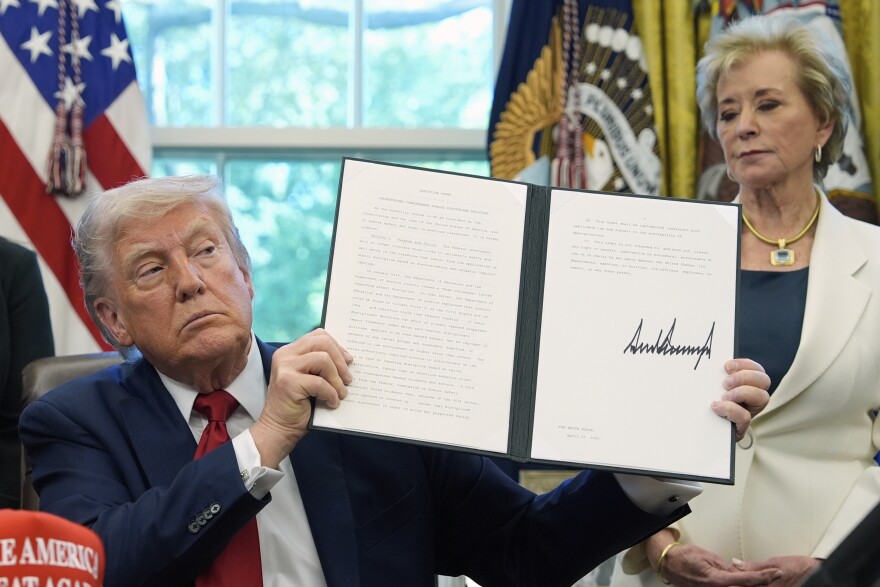Beyond High School is a free monthly newsletter covering higher education policy and practices in Colorado. Sign up to get it delivered to your inbox early.
For the first time ever, the federal government has placed a cap on student loan borrowing. Borrowers will now have a lifetime limit of $257,500 for all federal student loans.
Congress approved the changes in President Donald Trump's "big, beautiful bill" passed earlier this month. And there's plenty more borrowers should know:
First, unsubsidized student loans will be capped at $20,500 a year. Graduate students will have a lifetime limit of $100,000 for those loans.
Aspiring doctors and lawyers will also be limited in their borrowing. They'll now only be able to borrow $50,000 a year, with a $200,000 lifetime limit.
- Parents paying for their children's education won't be able to borrow as much. They previously were able to borrow up to an amount equal to the cost of their child's full college education. Parent PLUS loans, as they are known, will now be capped at $20,000 per year per child. Parents will also have a $65,000 lifetime limit per child.
The changes highlight the Trump administration's desire to pull back from the student loan borrowing business.
Get top headlines and KUNC reporting directly to your mailbox each week when you subscribe to In The NoCo.
Experts worry the changes will just drive borrowers to more costly private student loans. Or they fear students just won't go to college at all. Others are concerned that the bill will exacerbate doctor shortages nationwide.
Groups like the National Association of Student Financial Aid Administrators issued a statement just before Trump signed the bill on July 4 about its concerns.
NASFAA President & CEO Melanie Storey said in a July 3 statement the bill could limit access to college for low-income students. Storey, whose nonprofit association represents financial aid professionals, said she has multiple concerns about the bill, including the new limits imposed on the Parent PLUS loan programs.
This "may drive borrowers to riskier private loans, which are not available to all borrowers," she said.
Jason Gonzales is a reporter covering higher education and the Colorado legislature. Chalkbeat Colorado partners with Open Campus on higher education coverage. Contact Jason at jgonzales@chalkbeat.org.
This story was made available via the Colorado News Collaborative. Learn more at


